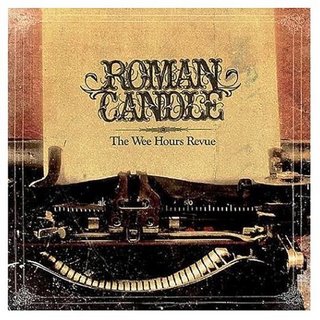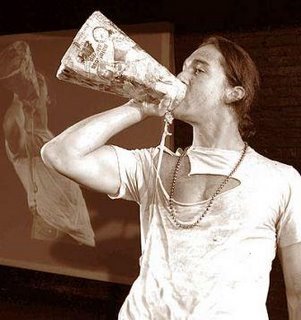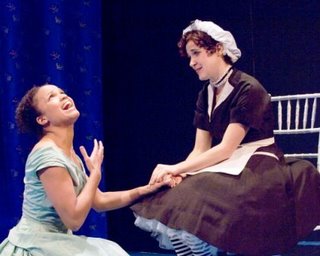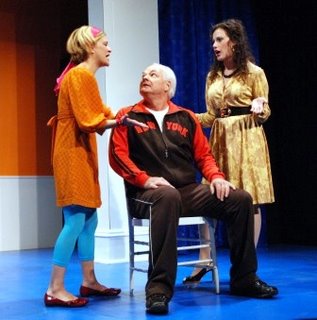 From the naturalism of Y tu mamá también to the dark fantasy of Harry Potter and the Prisoner of Azakban, Alfonso Cuarón has always been a vivid director, with shots so tight they hug off the screen and angles so crisp they demand every ounce of tension from a scene. His latest film, Children of Men, is a science-fiction parable for hope and humanity that is no less gritty or visionary as his other work. It is a more deftly executed film than Babel, a more compelling work than the limited Tzameti 13, and every minute is an absolute pleasure to watch, even (or especially) at its most terrifying.
From the naturalism of Y tu mamá también to the dark fantasy of Harry Potter and the Prisoner of Azakban, Alfonso Cuarón has always been a vivid director, with shots so tight they hug off the screen and angles so crisp they demand every ounce of tension from a scene. His latest film, Children of Men, is a science-fiction parable for hope and humanity that is no less gritty or visionary as his other work. It is a more deftly executed film than Babel, a more compelling work than the limited Tzameti 13, and every minute is an absolute pleasure to watch, even (or especially) at its most terrifying. Never mind the social commentary about how a government uses terror as a weapon to police its populace, or the near-future notion of where our nations are heading. Children of Men’s catalyst is a sudden and inexplicable onset of infertility across the globe, but the premise looks more at class disparity and urban terror than at science fiction. (The few nods to the future include holographic advertising on buildings, one-handed integrated computer keyboards, and LED displays in the windshield – all things that exist already.) Our lens for the film is Theo (Clive Owen), a former activist who has been hollowed out just enough by the death of his son to pass the time as a journalist. He’s looking for hope, however, so he’s happy to help his ex (Julianne Moore) secretly transport a miraculously pregnant woman (Claire-Hope Ashitey, as the aptly named Kee) to a group of international scientists known as the Human Project. If only it were that easy: for every good-natured midwife like Miriam (Pam Ferris) there’s an ill-tempered cop like Syd (Peter Mullan) or an ideological radical like Luke (Chiwetel Ejiofor).
Clive Owen is the perfect choice for the role, a leather-skinned man with sunken eyes and a bitter voice. Because much of Children of Men is shot in action, or suspenseful quiet, Cuarón trusts the nuances of Owen’s craggy face to get across what there isn’t time to say. He also does wonders for the London atmosphere—the film looks much like Danny Boyle’s 28 Days Later—creating a washed-out desolation to every scene. However, whereas Boyle’s film was of an empty London, Cuarón’s shots are crammed with people, and scene after scene is filled with abrupt and gritty violence. In the first scene, Theo buys a cup of coffee and walks outside. He pauses a moment, considering the void in his life, perhaps, and all of a sudden the coffee shop explodes.
In Cuarón’s world, violence cannot be separated from life, and even a moment of messianic calm late in the film holds for just a few minutes before the uncontrollable bullets of man start flying again. A lesser director would overdo the violence, or would lose the message to the thrill-ride moments, but Cuarón makes it all one: the blood isn’t belabored, the politics aren’t precise—everything exists in its own precisely framed moment, and this tragic future rolls on. Somehow, in the midst of this, there are moments of comedy (thanks to the wise casting of Michael Caine as an aged hippy) and the faintest glimmers of hope in childbirth.
From idyllic forest retreats to cavernous art preservation rooms to the uncomfortable grime of an internment camp for refugees, Cuarón has captured the essence of humanity, and has made an effortlessly poignant masterpiece.
First posted at [Film Monthly]















